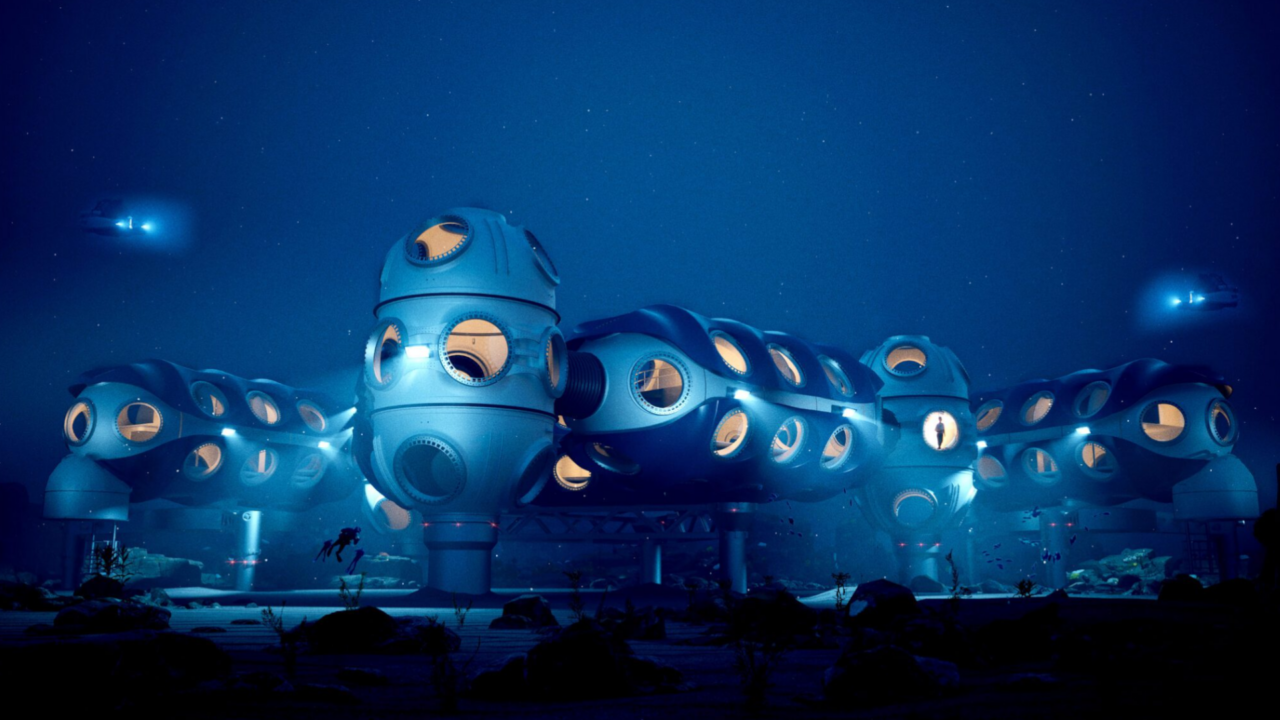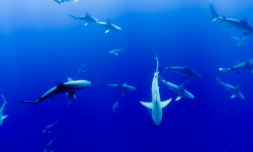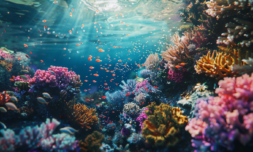What is Sentinel’s design like?
So far, a complete wooden prototype has already been completed.
Sentinel is set to be 57 feet in length, with an internal living space of 14,000 cubic feet. It will be powered by renewable energy, housing six people for periods of up to 28 days.
The project, once completed, will be partially made with 3D printed material and tested in a Gloucestershire quarry before it makes its debut in the ocean. All tests passed, Sentinel is expected to be anchored in the Mediterranean Sea by 2027.
Rather than just being a completely unique living experience, the space will be opened up to researchers. Goddard says being able to spend this many consecutive hours underwater will open doors to observing and understanding the behavioural cycles of various marine species.
The hub will be fitted with multiple windows, allowing scientists to watch the underwater world around them. Climate scientists will also be welcomed aboard to measure ocean acidity, ocean temperatures, and other data that will help us understand the health of the sea.

Thinking about the logistics
The Sentinel will sit on the edge of the twilight zone at 656 feet below the ocean’s surface. This part of the ocean is too deep for divers, but is traditionally skipped over by deep sea explorers.
Quite a few hurdles stand in the way of making the project a success, including low temperatures, high pressure, and the possibility of corrosion. Changing gases can also damage electrical instruments or make people inside the hub feel cold.
High humidity in the ship could encourage bacterial growth, meaning people on board could risk developing infections. Meanwhile, high pressure makes human taste buds almost obsolete. Food served in the Sentinel will need to be super spicy to have any flavour at all.
Not to mention, it’s going to be much cooler down there. Engineers will need to heat the inside of the Sentinel to 31 degrees in order for the atmosphere to feel like a mild 21 degrees.
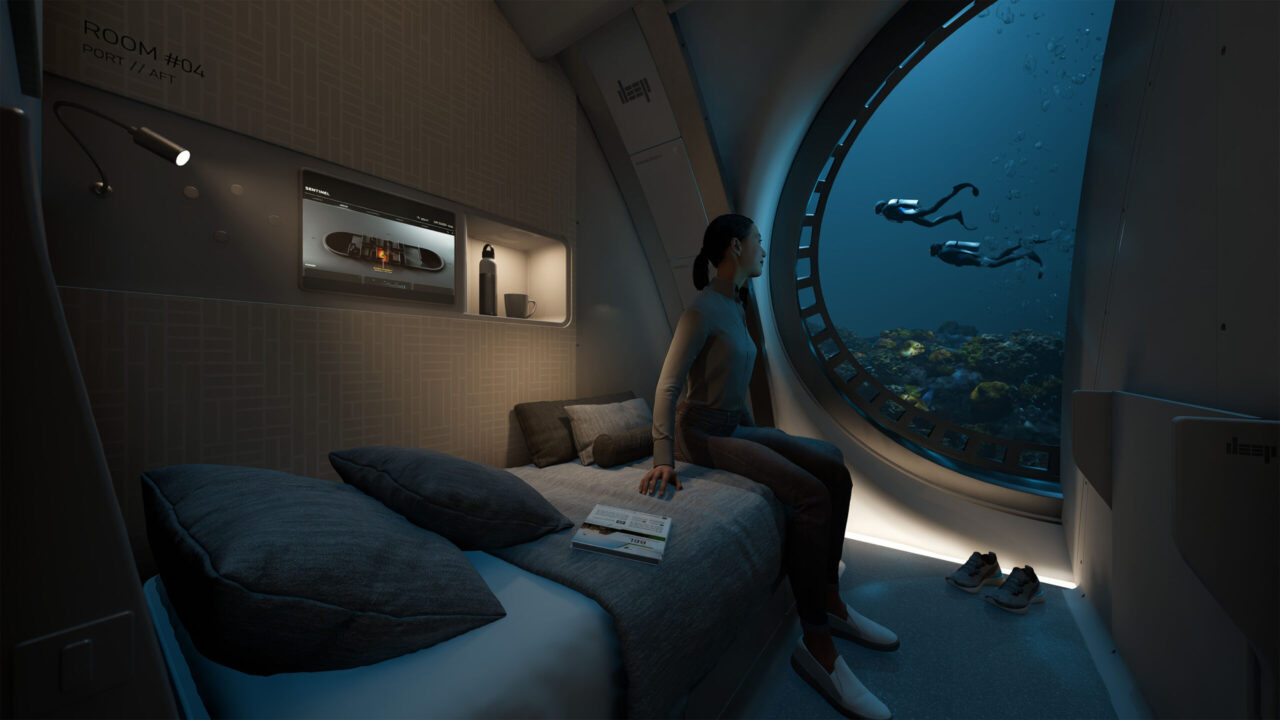
Professional divers will be the first guests inside the Sentinel, but eventually, the team at Deep plans to invite marine biologists, climate science experts, and archaeologists.
To get there, they’ll take a small submarine down to the base, lock onto the Sentinel, and climb inside the hub – similar to astronauts arriving at space stations. In fact, the team at Deep says there are many parallels to space travel involved in the project, including the isolation factor of being underwater.
The arrival submarine will double as a vehicle to explore the wider deep and collect marine samples, while staying safely tethered to the Sentinel via long cables.
Any samples collected can be tested in the on-site lab without having to be brought to the ocean’s surface.
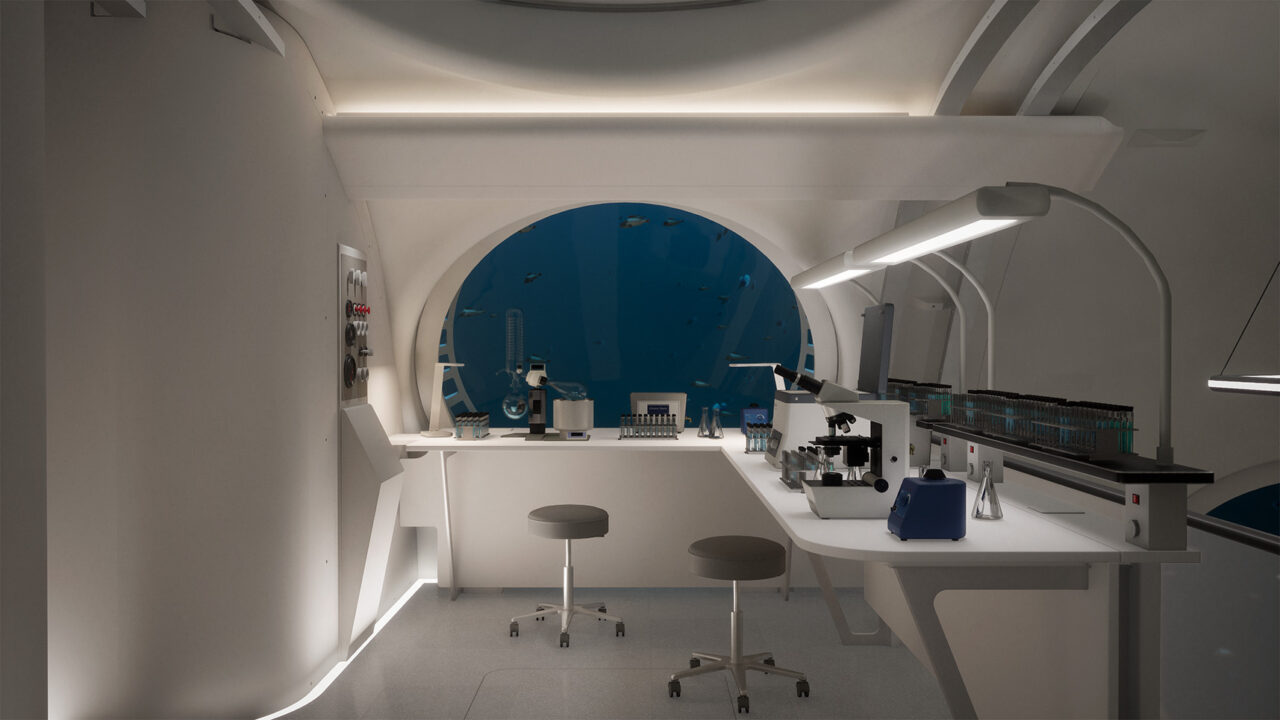
Sticking to the mission
So far, Deep has spent millions to create Sentinel, most of which was funded by private investors. Their goal is to build many more of these hubs in other oceans, with the strict goal of offering insights into the health of underwater environments globally.
The team emphasises that they are not interested in exploring oil, gas, or mineral reserves, but strictly gathering information to help us be more connected to the undersea world and all life within it.
‘At the moment, the people going down there are the people with [deep sea mining] on their mind,’ said Deep’s product director, Rick Goddard. ‘What we’re doing is putting other people with eyes down there. It’s called Sentinel for a reason. That’s its purpose – to be the watchtower.’
Roll on 2027, eh?










